El Acebuchal, often referred to as “The Lost Village” of the Serranía de Ronda in southern Spain, is a fascinating and somewhat mystical place with a unique history. It is a former mountain village nestled in the rugged hills of the Axarquía region, part of the natural park of Sierra de Tejeda, Almijara, and Alhama. It is located close to the more well-known village of Frigiliana, which is a picturesque whitewashed town that attracts many tourists to the region.
I have been out with my film camera again! And what a place this was!
Film photo details
I took all the photos below using a Mamiya 645 1000S camera with Kentmere 100 film. Developer: Spur Acurol-N, 1+70, for 9 minutes @20C.
The photos were digitised using a Nikon Zf mirrorless digital camera with a Tokina AT-X Pro Macro 100mm f2.8 D lens. The first two images were converted to positive and edited using Capture One software, the remainder using DXO PhotoLab 8.
Film roll No 435
The photos
Click on any photo to see a larger version.
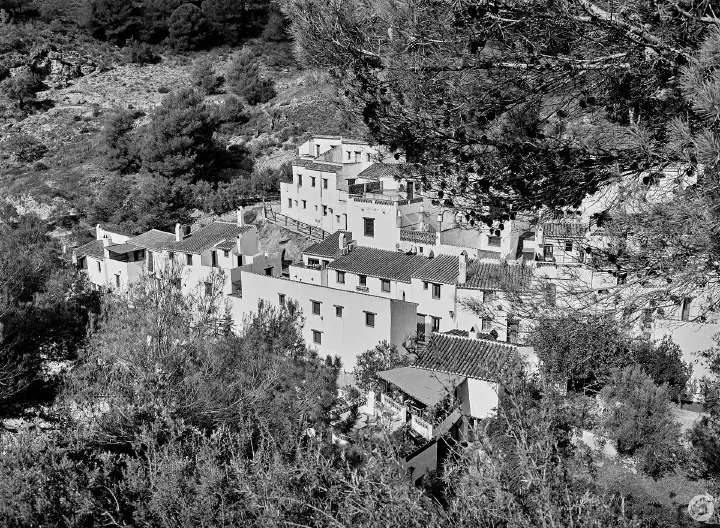
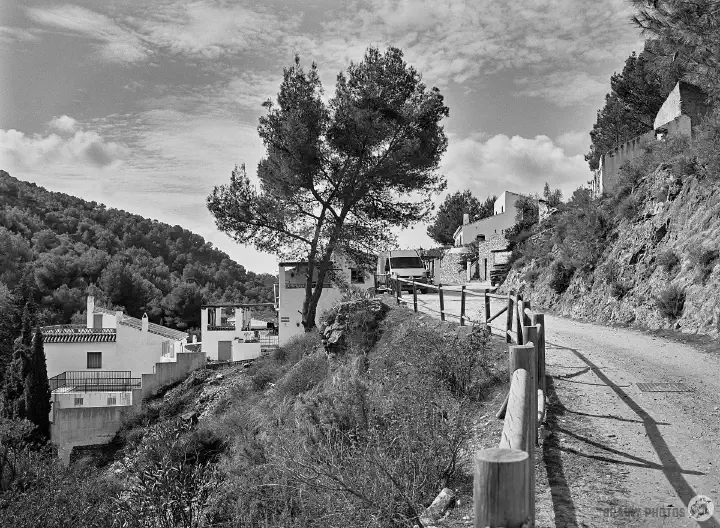
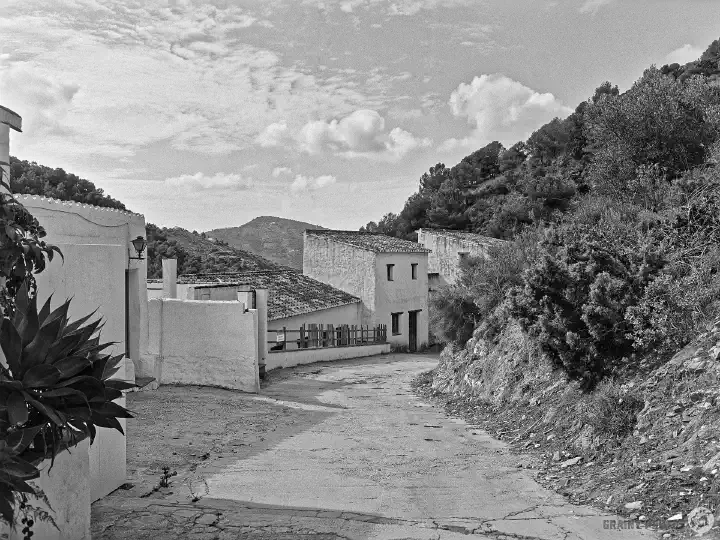
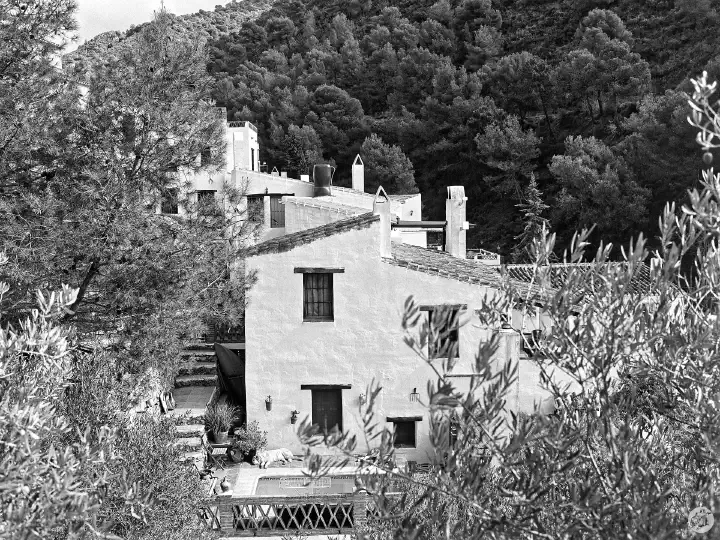
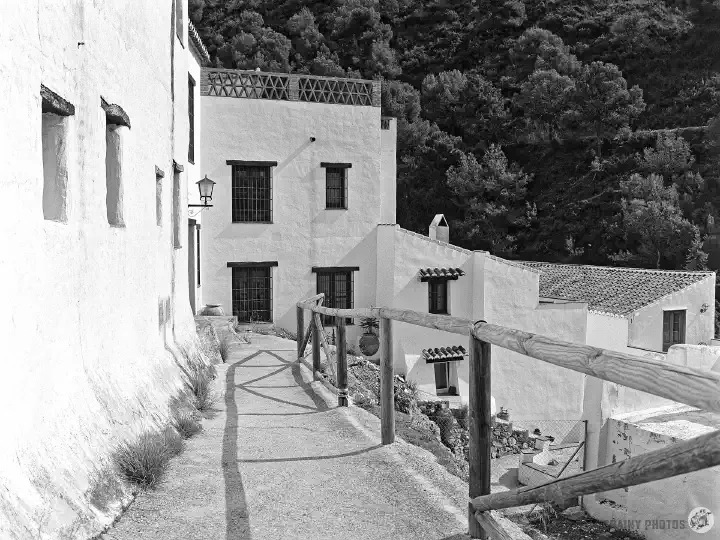
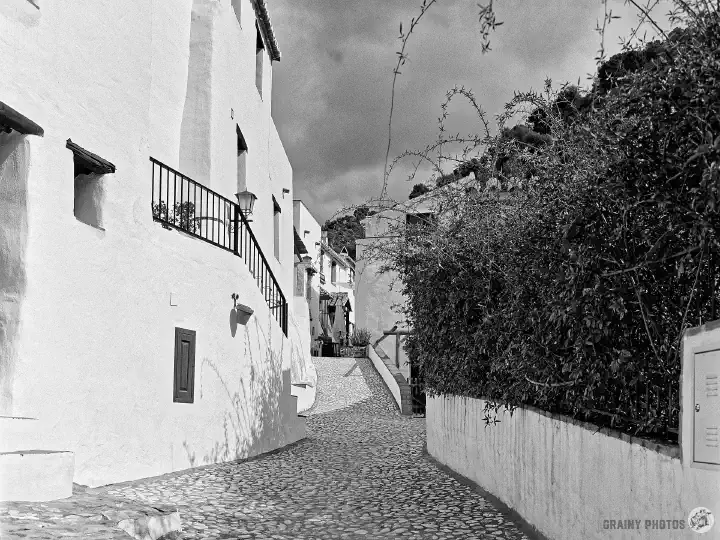
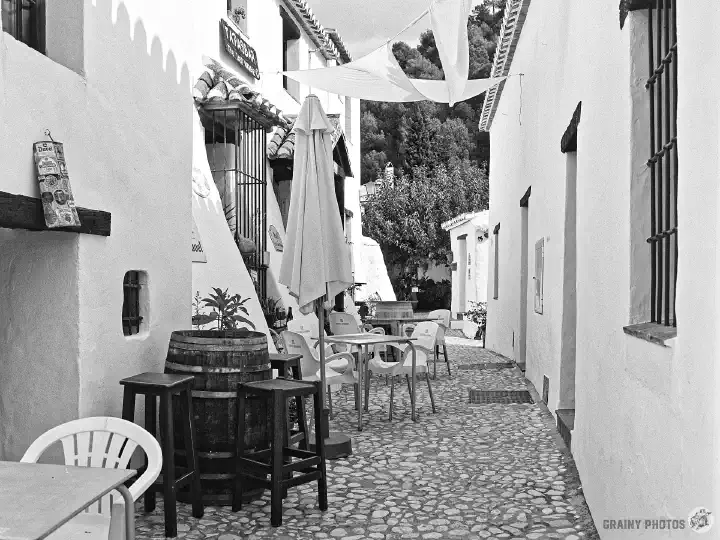
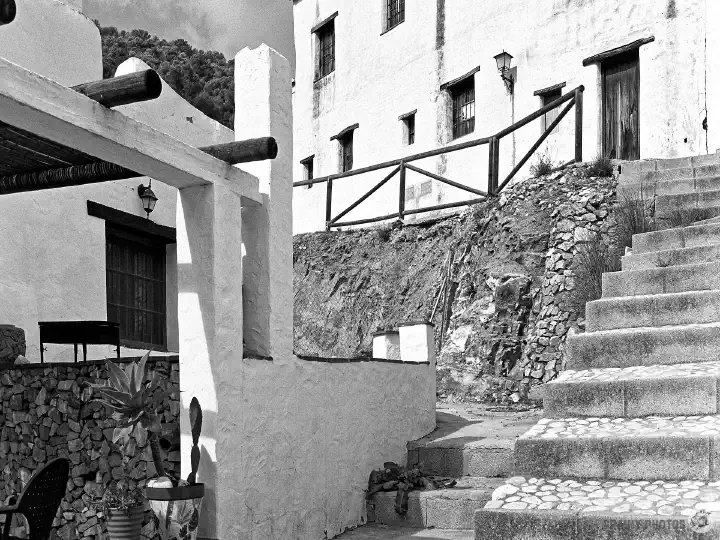
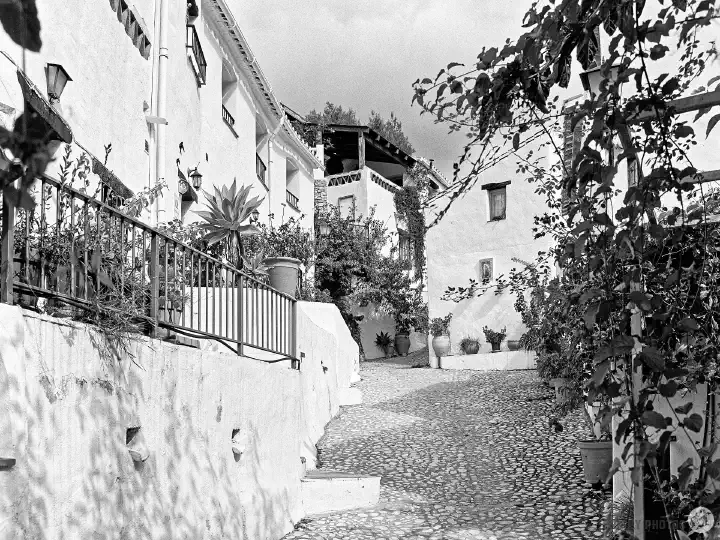
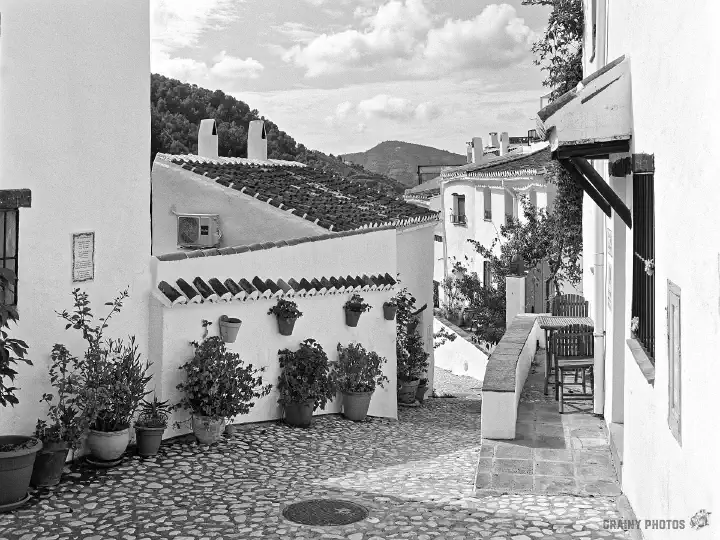
I like to find out about the places I visit, and this place was a gem. The following is a summary of what I discovered:
History
El Acebuchal was founded centuries ago, possibly in the late 16th century. The village’s name comes from the word “acebuche,” meaning wild olive, which grows in the area. It is believed to have originated as a small, self-sufficient community of farmers and shepherds who lived in the remote mountain region. It also became a stop-off point for mule drivers on their way from Malaga across the mountains to Granada.
El Acebuchal’s history took a dramatic turn in the 20th century during the years after the Spanish Civil War (1936-1939). Although Franco had won the Civil War, there were still pockets of resistance. In 1948, the Spanish authorities ordered the evacuation of the village and its subsequent destruction in order to prevent guerilla fighters and resistance groups from using the area as a hideout. El Acebuchal effectively disappeared from the map; it became locally known as el Pueblo el Fantasmas; the village of ghosts.
The revival
In the 1990s, a local man and his wife, descendants of the original inhabitants, decided to take on the challenge of restoring El Acebuchal. With the help of a small group of volunteers, they began the arduous task of rebuilding the village, restoring its traditional whitewashed houses, and bringing new life to the once-forgotten settlement.
They used the foundations of the old buildings and photos taken before the war to help them visualise how the village looked. With time, all 36 houses, the chapel, the bar and the cobblestone streets were rebuilt and restored and today El Acebuchal stands as a symbol of resilience, heritage, and community effort.
Visitors can walk through the narrow, winding streets, admire the restored houses, and get a sense of what life was like in a traditional Andalusian mountain village.
El Acebuchal today
The village’s revival has turned El Acebuchal into a minor tourist attraction, especially for those interested in Spanish history, rural life, and the beauty of the natural surroundings. It remains a quiet, peaceful destination surrounded by a lush green landscape, with stunning views over the mountains and valleys of the Sierra de Tejeda.
It is home to a small number of residents, but The village is also known for its eco-tourism and agricultural initiatives. The area has been revived with a focus on organic farming and sustainable living, offering visitors a chance to enjoy traditional Andalusian food, especially olive oil and local produce.
Visiting El Acebuchal
El Acebuchal is in a relatively secluded spot, and reaching it involves a drive through narrow, winding mountain roads. The best access road is from Frigiliana, although the last part is a dirt track. It offers a glimpse into a bygone era and is an intriguing stop for anyone interested in history, restoration, and the beauty of rural Andalucia.
The Restaurante El Acebuchal is very popular and it is recommended to book in advance (I had to wait twenty minuites for a table). The restaurant serves excellent traditional cooking using local produce, home made deserts and home made bread.
While El Acebuchal is not as heavily developed as other tourist destinations, a high proportion of the restored houses are holiday cottages available for rent. Visitors can enjoy hiking in the surrounding hills and the village’s simple but charming atmosphere.
Similar posts
- See more posts about White Villages in Spain.
- See more posts about Places in Spain.
